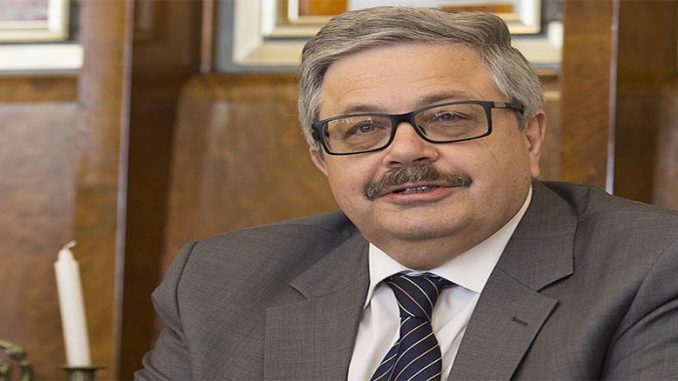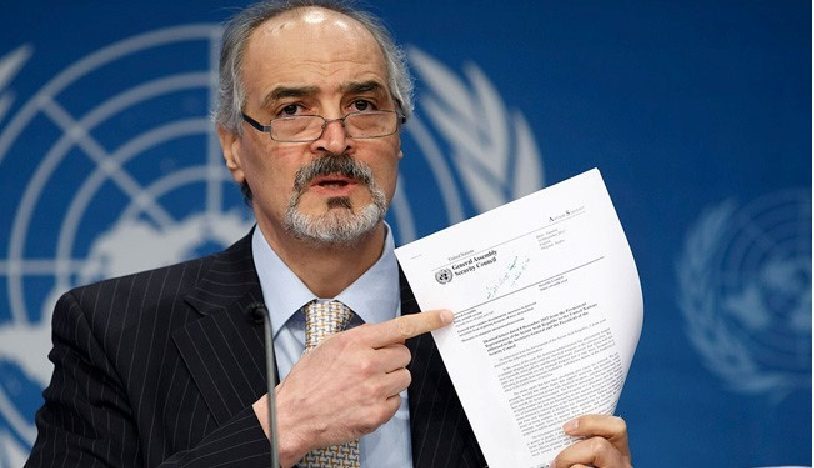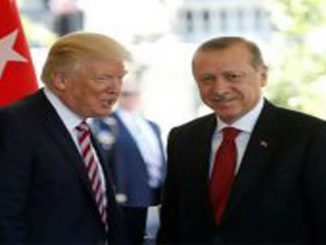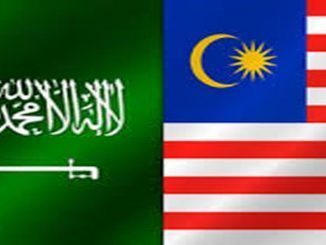
New Russian ambassador to Turkey, Alexei Yerkhov, takes over following killing of predecessor in December
Current relations between Moscow and Ankara are “promising”, Russia’s new ambassador to Turkey, Alexei Yerkhov, has told Turkish media.
“In the meantime, it requires a serious effort to bring them [relations] to a higher level,” Yerkhov told Ankara representatives of various media groups, including Anadolu Agency Editor-in-Chief Metin Mutanoglu, who met the diplomat at the Russian Embassy in the Turkish capital earlier this week.
The newly appointed ambassador, previously the head of the Russian Foreign Ministry’s Crisis Management Center, replaces Andrey Karlov, who was assassinated at an art exhibition in Ankara on Dec. 19 last year.
Karlov had been delivering a speech at the opening of an art gallery when a gunman shot him several times.
Turkish-Russian relations were tested after Karlov’s assassination. However, Russian leader Vladimir Putin described the shooting as a “provocation” designed to undermine ties with Turkey.
Yerkhov insisted political dialogue between Russia and Turkey was growing.
“I am talking about the communication between our senior management. Phone discussions between Russia’s president [Vladimir Putin] and Turkey’s president [Recep Tayyip Erdogan] have gained significant momentum recently,” he added
Yerkhov said Karlov’s killing had left both the Russian Foreign Ministry and the public in deep sorrow.
“We know that the investigation carried out by Turkey continues. We know that the institutions conducting the investigation in Russia are in intensive contact with their Turkish counterparts.
“We are sure that after completing the investigation, the results will be shared with the public and the Turkish people,” Yerkhov said.
He also said Moscow appreciated Turkey’s steps to immortalize Karlov’s memory.
Ankara renamed Karyagdi Street in Cankaya district, where the Russian embassy is located, after Karlov.
Yerkhov also served as Russia’s consul general in Istanbul between 2009 and 2015.
“During my six years of service, of course, I had difficult and beautiful times, but these six years were the happiest years of my life,” he said.
‘Very tight’ coordination on Syria
Yerkhov said there was “very tight” coordination between Moscow and Ankara on Syria, based on “the context of the Astana process”.
The ambassador said the fundamental aim of the Astana talks process was to create a non-conflict atmosphere in some regions of Syria.
“We know that the situation in northern Syria is now very sensitive and it has become sensitive in the light of recent developments. The sensitivity of this situation indicates that we should have close the cooperation between the two countries,” Yerkhov said.
About the Syrian peace talks in the Kazakh capital Astana, Yerkhov said humanitarian aid could be delivered to regions where clashes had been stopped.
Yerkhov said the Astana process did not collide with Geneva-based talks, adding: “For this reason, institutions and organizations that can contribute positively to both processes should definitely take part in it.”
A December cease-fire in Syria brokered by Russia, Turkey, and Iran led to the Astana talks, which are being held in parallel to UN-backed discussions in Geneva, to find a political solution to the six-year conflict.
He said a “180-degree change” has not been experienced in Syria due to the difficult situation there.
“There is an emotional aspect for me to establish peace in Syria because I served there for three years and it is a special case for me to have peace there and the regions that I visited before,” Yerkhov said.
Economic relations
Yerkhov said the trade volume between Moscow and Ankara had decreased, but economic relationships overall had developed.
“We think there is still substantial potential in trade between the two countries which has not been discovered,” he added.
Erdogan frequently reiterates that Turkey’s desire is to increase mutual trade volume with Russia up to $100 billion.
After Turkey shot down a Russian military jet over an airspace violation in November 2015, Moscow took several measures against Ankara, including banning imports of Turkish agricultural products and ending visa-free travel for Turks.
In June, Moscow lifted the ban on some agricultural produce and Turkish companies involved in construction, engineering, and tourism.
S-400 missile system delivery
Yerkhov did not comment on the delivery of a Russian air missile system to Turkey, saying: “This is a question that I do not want to answer.”
“Due to its sensitivity, it is being discussed in detail by both Turkish and Russian media. There is a huge humming noise both in Washington and Brussels on this issue. If you look at the Russian websites, you will find many different interpretations,” he said.
Yerkhov said his every word on this issue could be perceived as true or different, or it can be abused.
“My offer is to talk this issue after a while,” he added.
Erdogan previously said negotiations on the missile system had been “largely” completed and he said the purchase of S-400 system is not “worrying”.
Russian presidential aide Vladimir Kozhin said in late June that Moscow and Ankara had agreed on the delivery of S-400 mobile systems but that the Kremlin had not approved a loan for the deal.
The S-400 system was introduced in 2007 and can carry three types of missiles capable of destroying ground and air targets, including ballistic and cruise missiles.
It can track and engage up to 300 targets simultaneously and has an altitude ceiling of 27 kilometers (17 miles).
Reporting by Nazli Yuzbasioglu; Writing by Diyar Guldogan



